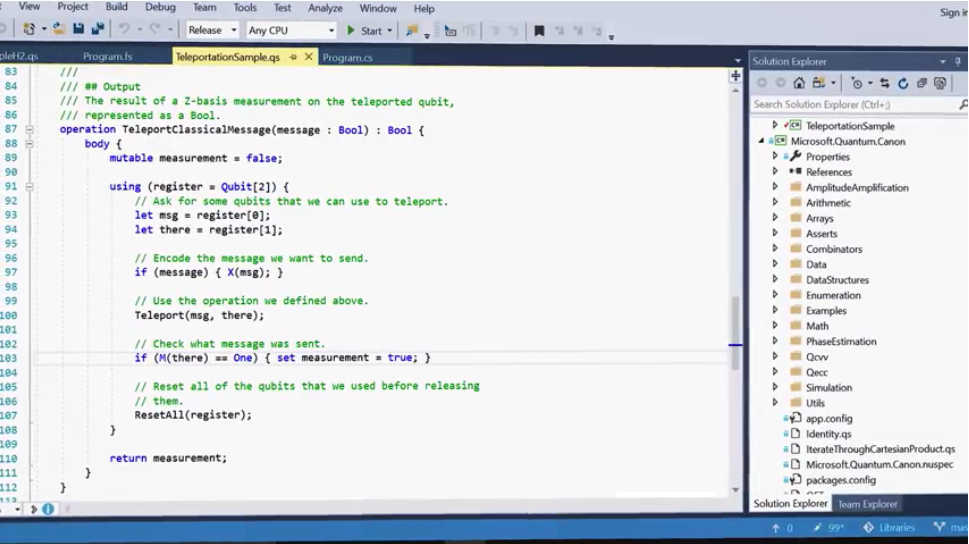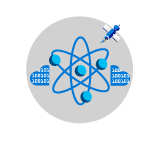| Microsoft Q# Quantum Language And Toolkit |
| Written by Kay Ewbank | |||
| Wednesday, 13 December 2017 | |||
|
Microsoft has released a preview version of Q#, its new programming language for quantum computing. The language is included as part of the Quantum Development Kit, alongside a quantum computing simulator and other resources designed to help developers get started writing applications for a quantum computer. The announcement of the toolkit follows the initial news about the new language at Microsoft Ignite, back in September. However, Microsoft has been carrying out research into quantum computing since 2005, with teams at both Redmond and at the Station Q lab on the campus of the University of California, Santa Barbara. Researchers there work with theoretical physicists to experimentally investigate the topological effects in quantum matter to perform computations. The Redmond team have been working on software for these new hardware systems, and the result is now being made available as Q# and the Quantum Toolkit. While there is still no working quantum computer, the idea is the kit will let developers become familiar with quantum algorithms and what they might be used for, so that when (or if) the hardware ever appears, we'll be ready. Q# is integrated into Visual Studio, and is also designed to work with a local quantum simulator that is included as part of the kit and that can simulate up to 32 logical qubits (quantum bits) using 32 GB of RAM. This is intended to let you debug quantum code and test programs on your own computer. For larger applications, Microsoft also is releasing an Azure-based simulator that can simulate more than 40 logical qubits of computing power. The kit is accompanied by a raft of documentation, libraries and sample programs. The idea is that developers will use the kit to create apps that run on the quantum simulator, and when Microsoft's quantum machine eventually appears, the apps will run unchanged on the topological quantum computer. As we discussed back in September, the new Q# language does look similar to Microsoft's existing LIQUi|> open source quantum language, even down to using the same demo code.
As we explained back in 2015, LIQUi|> stands for Language Integrated Quantum Operations, and at that point was a set of three simulators with F# as a scripting language. It now includes a programming language, optimization and scheduling algorithms, and quantum simulators. LIQUi|> can be used to translate a quantum algorithm written in the form of a high-level program into the low-level machine instructions for a quantum device. When asked on Twitter this week how Q# relates to LIQUI|>, John Azariah,Compiler lead for Q# at Microsoft said that: "LIQUI|> is a self contained simulator where the quantum computations are expressed in F#; LIQUi|> allows the simulation of Hamiltonians, quantum circuits, quantum stabilizer circuits, and quantum noise models, and supports Client, Service, and Cloud operation. It allows the user to express circuits in F#, and supports the extraction of circuit data structures that can be passed to other components for circuit optimization, quantum error correction, gate replacement, export or rendering. The new toolkit is available for download.
More InformationTry out the Quantum Development Kit Related ArticlesVisual Studio Gets Quantum Language Microsoft Open Sources Quantum Computing QScript A Quantum Computer In Your Browser Hunt for Missing Prime Numbers In the Cloud Solve The Riemann Hypothesis With A Quantum Computer Boson Sampling Tests Quantum Computing A Quantum Computer Finds Factors
To be informed about new articles on I Programmer, sign up for our weekly newsletter, subscribe to the RSS feed and follow us on Twitter, Facebook or Linkedin.
Comments
or email your comment to: comments@i-programmer.info |
|||
| Last Updated ( Thursday, 14 December 2017 ) |



